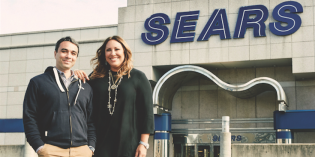You said that these Olympics were about nation-building more than winning medals. How is Canada a stronger country now?
I had a wonderful conversation with my son who called me up the day after the Games and said, “Growing up, I knew we lived next to a giant [the U.S.]. They were bigger than us, stronger than us, had more money, they competed in everything and wanted most things more. If we competed with them, we lost. If they went to war, we went with them. It seemed okay to us. But the next generation is never going to know these feelings. They’ll feel like we can go out into the world and not only feel like we belong, but that we can win.” What’s happened to us is that we’ve discovered winning without losing our personality and our own humility. That’s the Canada that came out of the Games. We need to build on that globally.
How did you execute this?
The Olympics are usually about a city or a region and we labeled this as Canada’s Games. Doing so changed the way Canadians feel about themselves. It served us on two levels: it established a new standing for the Games in a host country forever. It was also the best business case; there was no way that companies like RBC would pour tens of millions of dollars into two weeks of sport in Vancouver when they’re not even headquartered in Vancouver. What we wanted to create was a situation where these companies were in fact helping to put on the Games in every way: they were ambassadors for the Games, their employees were part of the organizing committee. They were seen by the country to have embraced something that mattered to the country.
What company nailed their presence at the Games?
Bell Canada became the most invested partner in Olympic history—summer, winter, in any country in the world—we wanted them to give us a guarantee that the technology they provided would be flawless. It’s a big ask. They delivered that. They tried to build a campaign with their customers that [said] they had the capacity to do this. But it was their employees in Vancouver and across the country [who] were ambassadors for the Games. In effect every person that was a Bell Canada employee was a Vancouver 2010employee. When RBC decided to take on the torch relay, they demonstrated to the country that they were in the middle of this with us. All these companies found themselves in a completely different arena than they’ve ever been before. In the past you’d walk in and say “We can guarantee you this much exposure.” We never had a conversation like that. What we wanted was for them to make a huge investment in our success so they could look at the Olympics and attach themselves any which way they could and take ownership of that.
Economically speaking, you could not have held the Vancouver Games at a worse time. Where did you get the money-printing press?
We raised $1.76 billion and 90% of that came from the private sector. That’s unprecedented in Olympic history. We realized that if we didn’t change the way Olympic marketing worked, we would have a massive financial challenge on our hands and likely be confronted with a deficit. In the history of the country, the most we’ve ever been able to generate for marketing an international event of this calibre was in the $25- to $30-million range [per corporate partner]. And we were hitting well past $100 million and in one case $200 million. Our top six sponsor companies put us at a higher level than the IOC figured we’d generate for the entire Games.
Marketers would kill for that sort of sponsor engagement. How can they learn from you?
The TwentyTen Group (twentytengroup.com) is a legacy company from the Games, and is now trying to build on that unity because I think we found something that’s new and different. It’s a new way for companies to go into [corporate sponsorship] and come out way better than they were going in. We tried to take what we did and develop a science around it. It’s one thing to sell more products, but I think it’s another to come out of an association and feel like your workforce is more engaged, your relationship with the community is better, you’re seen to be involved in something worthy. There’s a lot more there than just selling more T-shirts.









